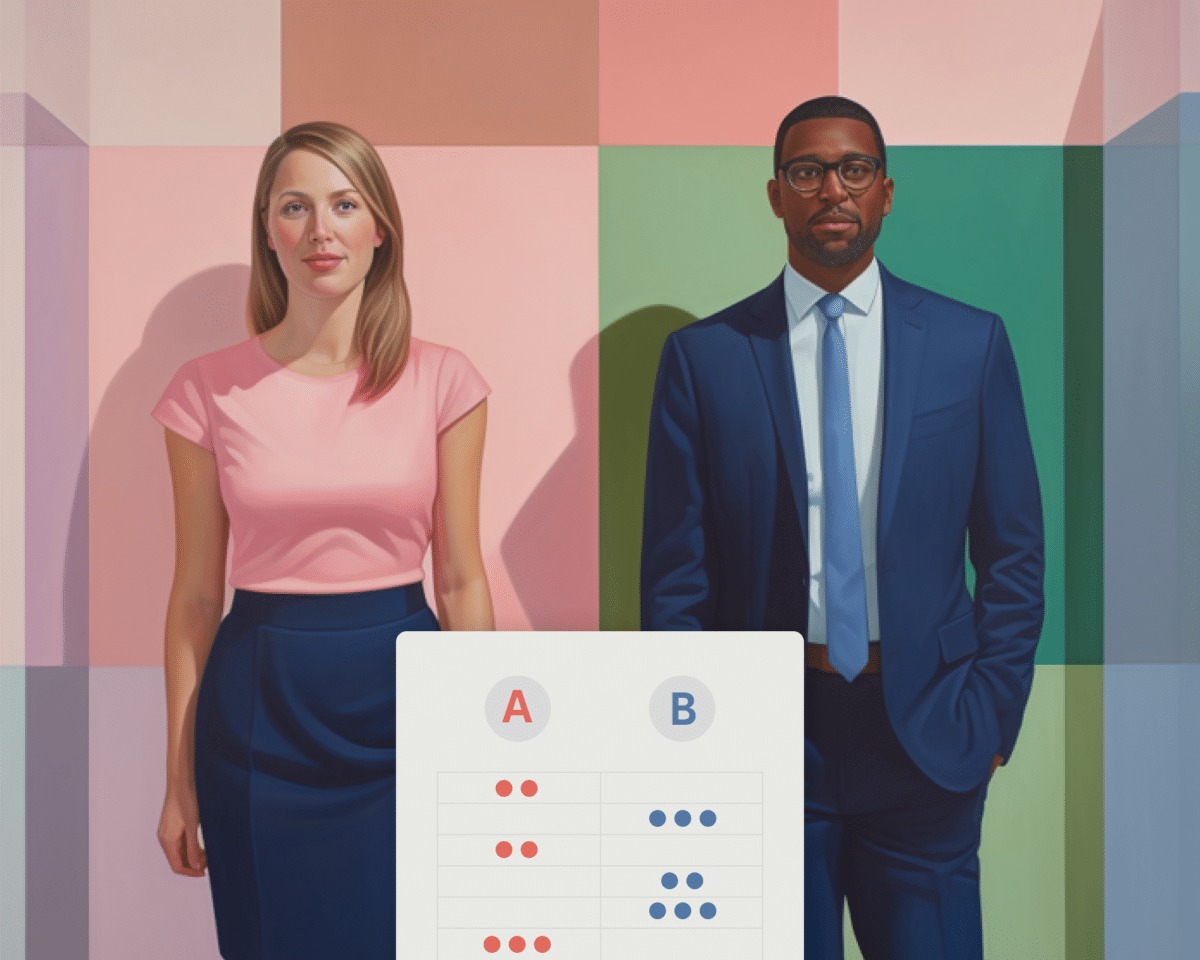Change is coming to the legal talent market
I’ve written about the fear that dominates our space right now. And while a lot of that anxiety feels overblown, there is no denying that AI, in conjunction with other pressures and trends, will lead to profound changes in how we think about and value human talent.
It’s one of the biggest questions of this moment: What will the new skills and career landscape look like? Some roles and functions will be diminished or eliminated by AI while some will be elevated in importance. And of course, we will see entirely new roles and titles emerge (“Knowledge Curator”? “Data Management Professional”?).
It all adds up to a disorienting but exciting time for anyone trying to guide their career in Legal. And while no one can claim to know what the future holds, we are far along enough into the AI era in Legal that we can see a few clear patterns emerging.
IN: Diverse and non-traditional experiences
This isn’t necessarily new – it’s been something that has long been valued highly on innovative teams – but experience outside of the industry is going to be more prized than ever.
We have been in such a high-change phase of Legal for years, well before the current burst of transformation fueled by generative AI. To confront this changing world, we don’t need orthodoxy on our teams and organizations. We need diverse thinking and a range of perspectives.
It’s why I have, in my own hiring, for many years been attracted to candidates who come from other industries and disciplines. They bring different insights to the table and tend to be more open to change and new ideas.
OUT: Reactive and rigid thinking
Corporate legal departments used to be the epitome of a rigid, reactive mindset to work and client service. For so long, legal teams defined their role and value in very narrow terms. Legal was the ultimate specialist organization, doing its own thing with little responsibility or connection to the rest of the business.
It was considered good enough to simply react to whatever legal challenges came up or specific stakeholder needs landed on our doorstep. The legal function at the company had little or no real larger agenda.
There will be no room at all for that mindset in the future of our industry. For years now we’ve been talking about partnership and business value, about serving a much more integrated and connected role in the larger organization. This new wave of change is finally going to push out the reactive and limited thinking that has so long held us back.
IN: Creativity and flexibility
The flip side of that move away from rigidity: A new premium on creativity and open-ended thinking. Now that the old rules of how to deliver legal services and structure a world-class legal organization no longer apply, what will take their place? You need people who aren’t afraid of ambiguity and are willing to try new approaches.
This is less of a skill and more of a mindset, an openness to change and innovation. Some have it naturally and some don’t. Some people like to operate in the safe, zero-risk territory of the familiar and the certain. That just doesn’t translate to the new, much more fluid ways of working that are likely to drive the next stage of our industry. You need people who will embrace new practices, new technology, and new challenges. That will not wait to be told exactly how to work and what to prioritize, but collaborate with those around them to shape new responses to new problems.
I spoke recently with an attorney who wanted to switch to a legal ops career, which she felt would allow her to bring more imagination to her work. She had gone into law in the first place because she thought it would allow for creative problem solving. Instead, found herself frustrated, tied down by rigid role expectations and endless paperwork. I think she’s right – the law should be a place where innovative and disruptive thinking is valued!
For so long, people like her have been suppressed and limited in our industry. Now, as so much rote work becomes automated, we need to explore new practices and delivery models for legal services. We need open-minded and creative thinkers to shape this new world.
OUT: Coding and developer skills
At one point, we believed that lawyers would need substantial tech and data skills. They would need to understand data analytics and visualization and be comfortable building or adapting their own tools. Now, with the rise of AI, it’s clear that “hard tech” skills like software development and system design are actually less critical for legal team members.
The reason is simple: AI is the most approachable, easiest to use, most human-centered tech that we have ever encountered. Sure, we will need some people to build systems and tools, but they won’t need to be lawyers. And they won’t need the same technical depth or experience level.
The new premium is going to be not on technical skill, but on the ability to integrate AI and other resources into an effective whole. We will value professionals who can bring it all together, who can find ways to connect technology to people and practices in a way that works.
IN: Relationship development, persuasion, and storytelling
One of our core principles at Ironclad: “Let humans do more humaning.” In other words, use technology and tools to automate and support the experience of human beings, allowing them to do the things that matter most that only people can do.
And right at the top of that list is persuasion. The ability to convince others to join you and believe in what you are doing will be more important than ever.
We are going into a period of extreme change, and will need to get people to accept very new and unfamiliar ways of working. You can’t simply send out a memo and tell everyone how things are supposed to work now. You need to establish a vision that attracts others, to build alliances and relationships of support and value. And that only comes from telling a clear, powerful story that resonates with others.
We aren’t used to valuing storytelling and vision-setting… but in an industry in extreme change, when you need to guide and inspire others to try something new, those qualities are beyond price.
Remember: Humans, not machines, will build our future
Where is legal expertise and insight in all this, you might ask? We will always need trained lawyers and others who can understand and interpret the law. But those skills, while important, are not enough. The age of the isolated and irreplaceable expert is coming to an end in Legal. Having someone on your team whose sole value is that they are very deep in one very specific legal topic, say, becomes far less interesting when you have access to AI trained on every applicable law and precedent.
I’ll close with this. Machine intelligence is disrupting our industry… but it will be human intelligence, ingenuity, and creativity that will shape its future.
In a disrupted talent landscape, there will be plenty of opportunity for those who have their eyes open to it. Younger and less experienced people can thrive because they are comfortable and open to new ways of working. Those of us who are older and more experienced can also thrive, provided we can adapt what we know to a new world and unlearn things that no longer apply (which can be a lot harder than learning!).
Ironclad is not a law firm, and this post does not constitute or contain legal advice. To evaluate the accuracy, sufficiency, or reliability of the ideas and guidance reflected here, or the applicability of these materials to your business, you should consult with a licensed attorney. Use of and access to any of the resources contained within Ironclad’s site do not create an attorney-client relationship between the user and Ironclad.





